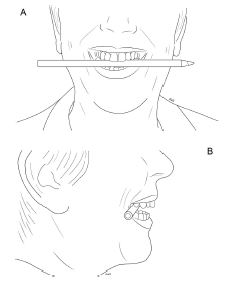
It has been confirmed, smiling really can trick your mind into being more positive simply by moving your facial muscles. The University of South Australia published a study in Experimental Psychology, which looked at two smiling scenarios and how the stimuli affect people:
- First was the impact of a covert smile or hidden smile on the perception of face and body expressions.
- Second being a forced smile that forced participants into smiling by holding a pen between their teeth, forcing their facial muscles to replicate the movement of a smile.
The research found facial muscular activity alters the recognition of facial expressions additionally affects body expressions, which both generate more positive emotions.
Human and Artificial Cognition Expert from the University of South Australia’s Lead Researcher Dr. Fernando Marmolejo-Ramos says, for mental health, the findings are important because when muscles say you’re happy, you’re more likely to see the world around you in a positive way.
“In our research we found that when you forcefully practise smiling, it stimulates the amygdala – the emotional centre of the brain – which releases neurotransmitters to encourage an emotionally positive state.
“For mental health, this has interesting implications. If we can trick the brain into perceiving stimuli as ‘happy’, then we can potentially use this mechanism to help boost mental health.”
The study re-created findings from a ‘covert’ smile experiment which evaluated how people interpret a range of facial expressions. In other words, the range of motion between frowns to smiles. This was done using the pen-in-teeth technique; which was extended by using point-light motion images capturing sad walking videos turning in to happy walking videos as the visual stimuli.

Dr. Marmolejo-Ramos says the link between action and perception was strong.
“In a nutshell, perceptual and motor systems are intertwined when we emotionally process stimuli.”
“A ‘fake it ‘til you make it’ approach could have more credit than we expect.”